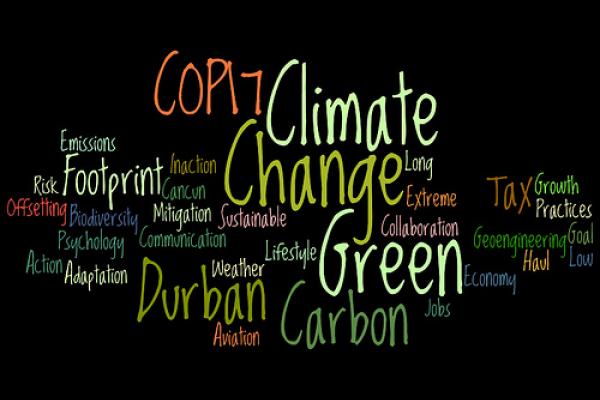After two weeks of extensive talking, and running hours beyond schedule, a deal to cut global carbon emissions finally has been reached. As the climate conference in Durban, South Africa came to a close last weekend, a treaty known as the Durban Platform emerged, requiring all countries to begin curbing carbon emissions by 2020.
The deal binds all countries — rich and poor — to “hold the increase in global average temperature below 2C or 1.5C above pre-industrial levels,” according to the Framework Convention on Climate Change. Further, plans for enhanced action must be solidified by 2015, with the contracts bearing legal force.
Michael Jacobs, a member of the of the Grantham Research Institute on Climate Change and the Environment in London, told the BBC that " by forcing countries for the first time to admit that their current policies are inadequate and must be strengthened by 2015, it has snatched 2C from the jaws of impossibility. At the same time it has re-established the principle that climate change should be tackled through international law, not national, voluntarism.”
But the treaty has its drawbacks.
One of the biggest gridlocked issues at the Durban conference was whether developing nations should play a role in cutting emissions alongside other wealthier, more developed nations. The ecological debt already is running high, and despite the Green Climate Fund's commitment to assist poor nations in developing and adapting to the requirements of cutting emissions (with funding around $100 billion per year), it is still uncertain at this point where the money will come from.
The Durban platform also fails to ascertain the scale of cuts needed, especially in relation to developed nations. To wit Keith Allott, head of climate change at the World Wildlife Federation-UK, told The Guardian, “Governments have spent crucial days focused on a handful of specific words in the negotiating text, but have paid little heed to repeated warnings from the scientific community that much stronger, urgent action is needed to cut emissions."
Moving into 2012, the working group of the Durban Platform will organize financing, technology development and transfer, and transparency of action, among other things (see the Framework Convention on Climate Change here).
While the events of the past two weeks have brought progress in ideology, how combating carbon emissions and establishing an ecological platform for stifling temperature will work on a global scale, while continuing to face financial worries, remains to be seen.
Joshua Witchger is an editorial web assistant for Sojourners.
Got something to say about what you're reading? We value your feedback!
